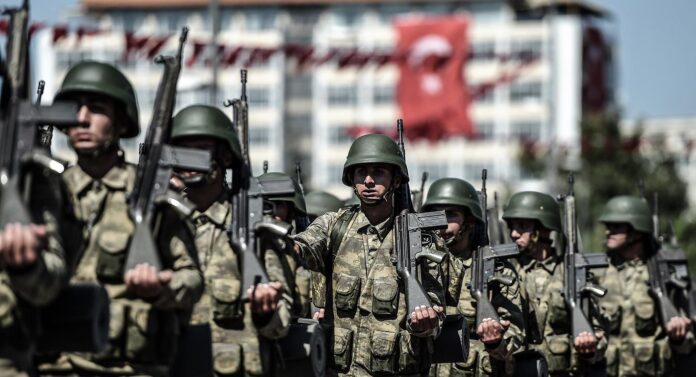Authors: Zeinab Abul-Magd, İsmet Akça, and Shana Marshall
Affiliations: Oberlin College, Independent Researcher, Elliot School of International Affairs
Organization/Publisher: Carnegie Middle East Center
Date/Place: June 2020/ Beirut, Lebanon
Type of Literature: Working Paper
Number of Pages: 34
Keywords: Turkey, Egypt, Military Business, Public Oversight, Military Civilian Businesses
Brief:
The authors provide a comparative analysis between the Turkish and Egyptian military’s business and their dominance of their respective countries’ economies. Both military institutions have enjoyed rather full or partial control over the state. Though the Turkish military is now remarkably marginalized from the political sphere, it is still a powerful economic actor. On the other hand, the Egyptian military fully controls the whole state with a tight grasp on the economy of the country. However, the authors argue that both militaries are enjoying a dominating economic power by benefiting from legal and financial advantages and privileges, although they differ in terms of political power and control. Both models share some similarities along with some differences. The authors comparatively analyze in detail each military business through underlining “eight aspects of the political economy of the military,” in both cases including: historical evolution; legal foundations and privileges; size and sectors of investment; structure, management, and labor; financing and distribution of profit; current political conditions; auditing and public oversight; and relationship to the defense industry. In Turkey, the military’s pension-fund created holding company OYAK (Ordu Yardımlaşma Kurumu) historically has grown to be one of the largest companies that dominates the civilian economic enterprises. Nevertheless, in Egypt, many conglomerates have dominated the civilian economy. The authors concluded that there are many similarities between the two military businesses. Both are deeply involved in heavy manufacturing investment and energy sectors as well as financial sector. The civilian businesses of military in both cases benefit from legal and institutional privileges and tax exemption that guarantee high profits and have allowed them to benefit from different political and economic environments. Additionally, militaries in both cases have enjoyed political power that maintained their influential position; even after the Turkish military’s marginalization from politics under the rule of the AKP, they still have managed to preserve their advantages and privileges. On the other hand, there are differences between these two dominant economic actors. Both militaries have dominated public and private civilian business. However, the Turkish military’s businesses are centrally managed and follow an oligopolistic path, while the Egyptian military’s businesses monopolistically control the economy through a wide range of “complex conglomerates.” OYAK has its legally well-defined administrative board, technocratic managers and skilled labor which guarantee professional and efficient management in accumulation of capital and profit reinvestment. Conversely, Egyptian military businesses are fragmentally administered, managed by officers without expertise, and unskilled labor of conscripts. Another difference lies in the relationship between civilian manufacturing and arms production. OYAK is totally separate from the defense industry and has never been involved in arms production, while the Egyptian military has converted substantial parts of its defense industry into civilian production besides using arms manufacturing facilities and labor in civilian production. From a political standpoint, although the Turkish military is marginalized from politics, OYAK has yet managed to secure its autonomous position and independent auditing system away from the AKP supervision. However, the Egyptian military’s political and economic power has always been very high, and maximized under Sisi it is maintaining privileges and dominance with alleged corruption. Moreover, it has managed to get involved in more sectors related to public surveillance and cyber security. Finally, the authors suggest both short and long term policy recommendations. Regarding Turkey, they recommend in the short term the removal of legal privileges, tax exemptions, and the classification of OYAK assets as state property; abolishing the compulsory membership to additional social security organizations; termination of the obligatory subtraction of dues from the salaries of noncommissioned officers; and the resolution of judicial disputes between OYAK and its members in front of civilian courts. In the long term, they recommend dissolving OYAK to end the military’s economic existence, and enhancing the equal rights of all past and current members over its property. Regarding Egypt, they suggest in the short term applying minimum wage laws to conscripts; legalizing the unionization of civilian workers in military enterprises; suspending the use of military courts to try civilian workers or conscripts; listing these enterprises on the local stock exchange; full access and auditing of military business accounts; employing civilians to monitor military profit; and abolishing legal advantages and tax exemption. In the long term, they recommend the full separation of military from civilian economy, confining military investment to only the defense industry, and ending compulsory conscription.
By: Yomna Süleyman, CIGA Research Assistant




